
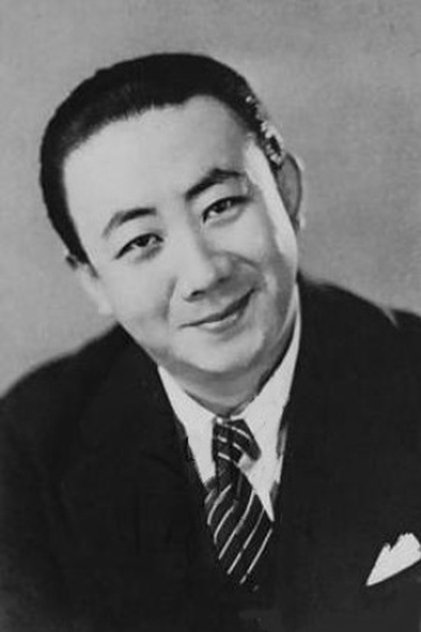
Roppa Furukawa
Born: August 13, 1903
Died: January 16, 1961
in Chiyoda, Tokyo, Japan
Died: January 16, 1961
in Chiyoda, Tokyo, Japan
Movies for Roppa Furukawa...





Title: Tōkaidō yajikita chin dōchū
Character: Otsuka
Released: December 27, 1959
Type: Movie
Japanese comedy film.


Title: Holiday in Japan
Released: June 15, 1958
Type: Movie
Japanese comedy film released to commemorate the 10th anniversary of Shintoho's founding.

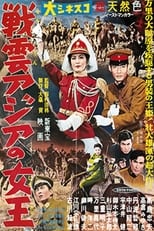
Title: Queen of Asia
Released: December 28, 1957
Type: Movie
Japanese war film based on the true story of Yoshiko Kawashima, played by actress Miyuki Takakura in her film debut.



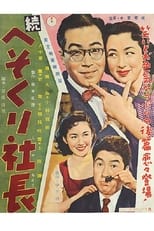
Title: The President Talks Bank
Released: March 20, 1956
Type: Movie
The president learns that the company's biggest stockholder is also a friend of his singing teacher and spies on his movements.

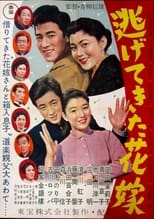

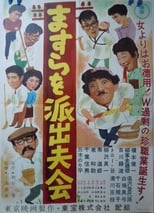
Title: Masura o hashutsu fukai
Released: February 5, 1956
Type: Movie
Based on a comic strip by Kaoru Akiyoshi. First in a four part film series.

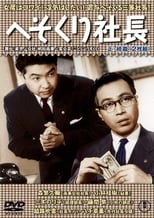
Title: The President's Boss
Released: January 3, 1956
Type: Movie
A new third-class president wins an appointment thanks to his marriage with the former president's daughter.

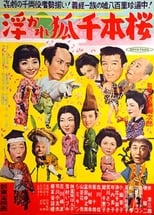
Title: 浮かれ狐千本櫻
Character: Yazaemon
Released: December 28, 1954
Type: Movie
Japanese comedy film.


Title: Rikidozan no tetsuwan kyojin
Character: Dr. Amachi
Released: December 13, 1954
Type: Movie
1954 Japanese film starring professional wrestler Rikidozan.

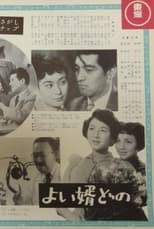
Title: Good Son-in-Law
Released: April 14, 1954
Type: Movie
Asahi Shoji's office girl, Aiko Tatebayashi, is a modern girl of Akira herself. The dentist's father has already cleared up his eldest daughter Keiko to Mizukami, but this time Aiko's turn and her sister's wedding greeting card are handy to add a request for the color of her sister's son. However, Aiko, who wants to be herself, uses the help of her friend, private detective Nobuko Migishi, to break through the behavior of the matchmaker, Mrs. Yamaguchi, who is a matchmaker. However, Nobuko's mistress Rokuro Kojima has become sloppy these days, so when Aiko investigated this time, it was found that the cause was Kojima's best friend Hiroshi Minamimura. Aiko was completely indignant at Minamimura's rude attitude of saying what she thought. In the mouth of Mrs. Yamaguchi's match, Mr. Fumio Kaki, the sales manager, is the best candidate.


Title: A 16-Year-Old Girl's Jazz Festival
Released: January 9, 1954
Type: Movie
Japanese musical.


Title: Achako's Notebook of Youth 4: Happy Marriage
Character: Horiuchi
Released: June 3, 1953
Type: Movie
Fourth installment in the "Achako's Notebook of Youth" series.

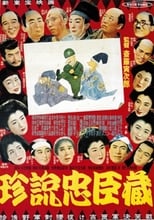
Title: 珍説忠臣蔵
Character: Oishi Kuranosuke
Released: January 3, 1953
Type: Movie
A comedic retelling of the legend of the loyal 47 ronin.

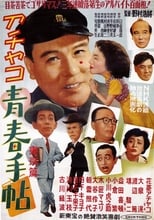
Title: Achako's Notebook of Youth: Tokyo
Released: August 28, 1952
Type: Movie
Japanese comedy film.

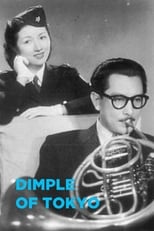
Title: Dimple of Tokyo
Character: Chojuro Hayashi
Released: July 15, 1952
Type: Movie
Buntaro, the president of a food trading company got tired of the day-to-day routine of life. The new secretary, Nobuko, suggested her "shacho-san" (the president) run away from the job. Nobuko took Buntaro to her home and introduced him to her own family as friend, "Sachio-san"...





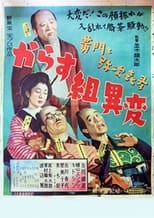
Title: Kōmon to yajikita kara su-gumi ihen
Character: Mito Kōmon
Released: July 31, 1951
Type: Movie
1951 Japanese movie. The characters of Mito Kōmon and Yaji and Kita are brought together

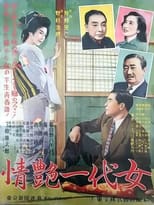
Title: 情艶一代女
Character: 山吹周吉
Released: February 3, 1951
Type: Movie
Based on the serialized story "東京一代女" which appeared in Tokyo Shinbun. A geisha known for her dancing begins training with the Onnagata Kikugoro VI as a dancer. She leaves her geisha life to pursue this new path, but falls in love with a naval officer who is the younger brother of Kikugoro and who saves her from a stalker monk. Kikugoro hears of this and becomes enraged. The naval officer dies in the Second Sino-Japanese War, causing the lead to go back home to her mother where she meets, and falls in love with, a poet who resembles her now-deceased fiancé. This poet leaves her in order to force her to dedicate her entire life to dancing, which he sees as her true pursuit.

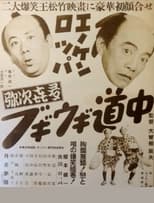
Title: Enoken roppa no yajikita bugiugi dōchū
Released: July 9, 1950
Type: Movie
1950 Japanese movie


Title: A Mother's Love
Released: June 27, 1950
Type: Movie
A bar girl tries to pass her three children, each from a different father, to rural relatives.

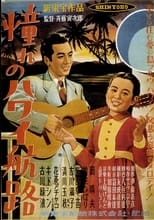

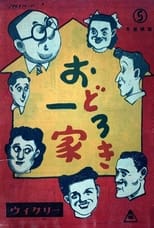

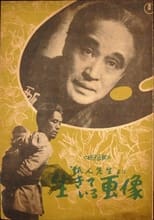
Title: Living Image
Released: October 12, 1948
Type: Movie
A film dealing with the comings and goings of individuals in the immediate postwar period.

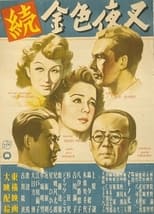
Title: Golden Devil Part 2
Released: February 3, 1948
Type: Movie
1948 adaptation of Golden Devil, part 2

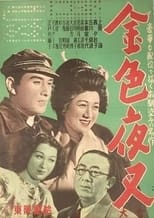
Title: Golden Devil
Released: January 20, 1948
Type: Movie
1948 adaptation of Golden Devil

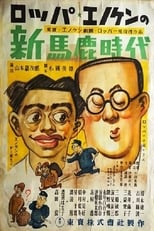


Title: Todoroki Sensei
Released: March 18, 1947
Type: Movie
Based on the comic by Kaoru Akiyoshi

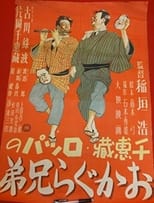
Title: The Okagura Brothers
Released: October 22, 1946
Type: Movie
1946 Japanese movie

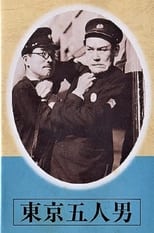

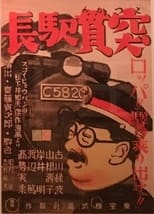
Title: Tokkan ekichô
Released: March 29, 1945
Type: Movie
Based on the comic by Ichio Matsushita


Title: Until Victory Day
Released: January 25, 1945
Type: Movie
An Invention laboratory is working on the creation of a performance 'bomb' in the shape of a rocket that could be delivered to the front in order to entertain and amuse the national troops. Inside this rocket would be tiny performers. Once launched from the laboratory and landed amidst the Japanese troops the soldiers could enjoy the performers. The laboratory succeeds and the rocket is built. It bears the insignia, 'until the victory days.' The Japanese government began a program of shooting and disseminating propaganda and entertainment movies for its troops during World War II. It is a lost film.



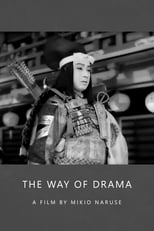
Title: The Way of Drama
Released: May 11, 1944
Type: Movie
The Way of Drama unfolds in the world of kabuki in Osaka, but also addresses the politics of popular culture and the rivalry between theatrical styles like those used by amateur actors to dramatise contemporary events.

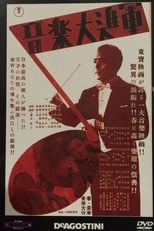
Title: 音楽大進軍
Character: Rokurota Kurikawa
Released: March 18, 1943
Type: Movie
A 1943 film.


Title: Onna keizu
Character: Shunzo Sakai
Released: June 11, 1942
Type: Movie
1942 adaptation of Izumi Kyoka's novel.

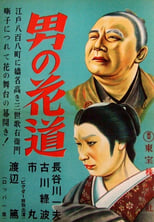
Title: A Man's Flower Road of Triumph
Character: Habu Genseki
Released: December 30, 1941
Type: Movie

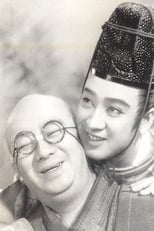
Title: Iemitsu and Hikoza
Character: Okubo Hikozaemon Tadataka
Released: March 26, 1941
Type: Movie
A sentimental tale of the filial love between shogun Iemitsu (matinee idol Hasegawa) and his loyal old retainer Hikoza (comedian Roppa, playing somewhat against type).

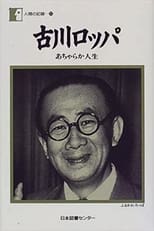
Title: Roppa's Honeymoon
Released: January 4, 1940
Type: Movie
A Kajirô Yamamoto directed comedy starring Roppa Furukawa.


Title: The Kingdom of Spectacles
Released: June 1, 1937
Type: Movie
Hide-chan (Hideko Takamine) and her family are on a trip to Tokyo. While visiting a fairground, a pickpocket (Kamatari Furukawa) steals the father's wallet. While everyone is trying to hunt down the thief, Hide-chan decides to make the most of it and enjoy her stay, while the thief and his main pursuer (Akira Kishii) play hide-and-seek among the funfair's spectacles and freakshows

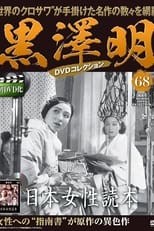


Title: Harikiri Boy
Character: Nogawa
Released: April 11, 1937
Type: Movie
An early Tōhō salaryman musical.

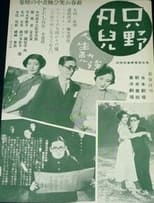
Title: Tadano Bonji: Jinsei Benkyô
Released: January 5, 1934
Type: Movie
Based on the comic by Yutaka Asou

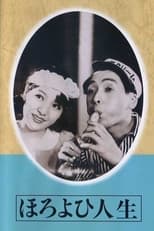
Title: Tipsy Life
Released: May 4, 1933
Type: Movie
The film generally regarded as Japan’s first true musical was also the first film made entirely in-house by the pioneering studio P.C.L., a company founded specifically to take advantage of emergent sound technology. P.C.L. worked in collaboration with a brewer’s firm, Dai Nihon Biru, who met the production costs of the film in full, and whose products are featured in the film in an example of the sophisticated and modern merchandising typical of the studio’s early work. The film is partially set in a beer hall, and its story concerns a beer seller at a train station and her relationship with a music student trying to create a hit song. Director Sotoji Kimura was to become a company stalwart, making such films as Ino and Mon, while actress Sachiko Chiba would emerge the studio’s first real star, appearing in such films as Wife Be Like a Rose.

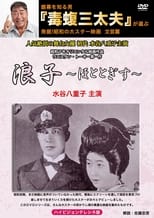
Title: Namiko
Released: May 19, 1932
Type: Movie
An early Japanese sound film, notable for being the only Japanese film ever to use the Western Electric Sound System. Contrary to most Western sources that give sole directing credit to Eizo Tanaka, it was actually co-directed by six different directors, Tanaka, Kazue Kimura, Kazuo Takimura, Ryoji Mikami and Hidekuni Ouchi.
